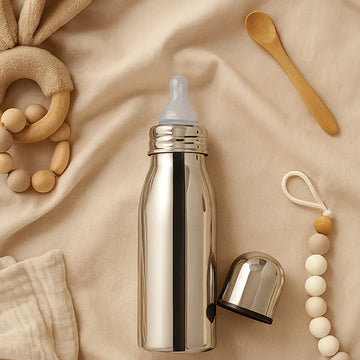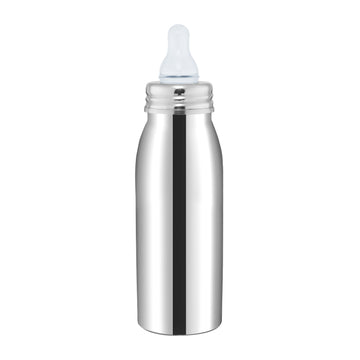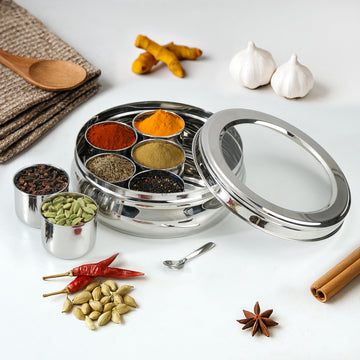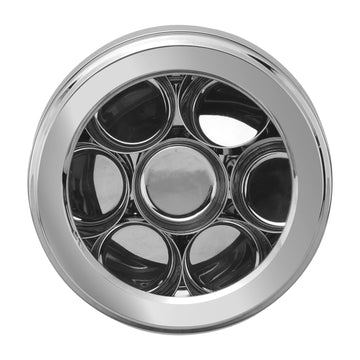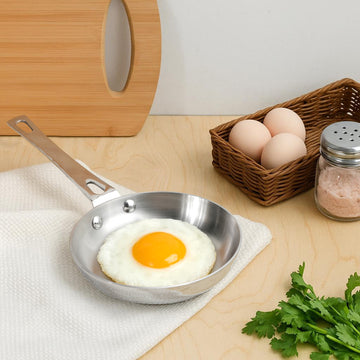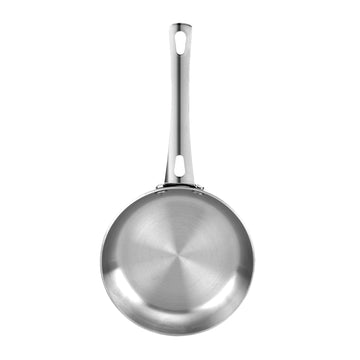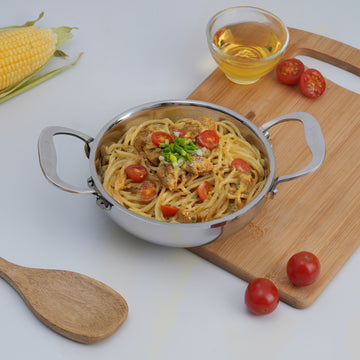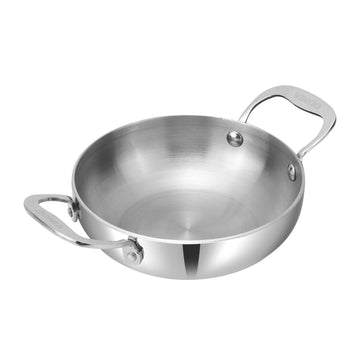Does Cookware really affect the taste of food and our health?
 Cookware is an essential aspect of every kitchen, but it is often overlooked. People often pay attention to the food's ingredients, cooking methods, and seasonings, but the cookware they use is not given much thought. However, the type of cookware you use can have a significant impact on the taste of your food and your health. In this blog, we will explore the relationship between cookware and the taste of food and our health.
Cookware is an essential aspect of every kitchen, but it is often overlooked. People often pay attention to the food's ingredients, cooking methods, and seasonings, but the cookware they use is not given much thought. However, the type of cookware you use can have a significant impact on the taste of your food and your health. In this blog, we will explore the relationship between cookware and the taste of food and our health.
Does cookware affect the taste of food?
Yes, the cookware does affect the taste of food. The type of material that cookware is made of can alter the flavour of your food. Different cookware materials conduct heat differently, which can impact how your food cooks and tastes. Here are some examples:
Copper: Copper is an excellent conductor of heat. It heats up quickly and evenly, which can result in evenly cooked food and delicious flavours.
Cast Iron: Cast iron cookware is great for searing and frying because it retains heat well. Cast iron pans can add a unique flavour to food, particularly if they are seasoned correctly.
Stainless Steel: Stainless steel is a popular choice for cookware because it is durable and easy to clean. However, it is not a great conductor of heat and can result in uneven cooking. This can impact the flavour of your food, particularly if you are cooking delicate items.
Non-Stick: Non-stick cookware is ideal for cooking delicate items like eggs and fish, as they do not stick to the surface. However, they are not suitable for high heat cooking, and overheating can result in a chemical reaction that alters the flavour of your food.
Overall, it is essential to select the right cookware for the type of cooking you plan to do. A well-chosen cookware set can enhance the flavour of your food and help you achieve the desired results.
Does cookware affect our health?
Yes, the type of cookware we use can impact our health. Some cookware materials can release harmful chemicals into our food, particularly at high temperatures. Here are some examples:
Teflon: Teflon is a non-stick coating used in cookware. However, at high temperatures, Teflon can release a chemical called perfluorooctanoic acid (PFOA) into your food. PFOA is linked to several health problems, including cancer and developmental issues.
Aluminium: Aluminium is a popular choice for cookware because it is lightweight and affordable. However, it can react with acidic foods, which can cause the metal to leach into your food. High levels of aluminium in the body have been linked to Alzheimer's disease.
Copper: Copper is a great conductor of heat, but it can also be toxic. When copper cookware is not properly lined, it can react with acidic foods and release copper into your food. High levels of copper in the body can lead to stomach issues and liver damage.
Ceramic: Ceramic cookware is a popular alternative to non-stick cookware. However, some ceramic coatings may contain lead or cadmium, which can be harmful to your health.
It is essential to choose cookware made from safe materials, particularly if you plan to cook at high temperatures or with acidic foods. It is best to purchase cookware from well-known brands that ensure thorough quality checks and balances. Vinod Cookware’s intelligent products are crafted with a complete understanding of the Indian kitchen and made from premium quality materials that ensure a safe and healthy cooking experience since 1962. The products are ISI approved with the latest Sandwich Bottom Technology which represents its commitment to excellence.
Go ahead, log on to https://vinodcookware.com/ and explore the wide and finest range of kitchenware.
Tags: Non-Stick Cookware, Aluminium Cookware, Copper Cookware, Stainless Steel Cookware, Cookware Range, Safe Cookware, Impact of Cookware


